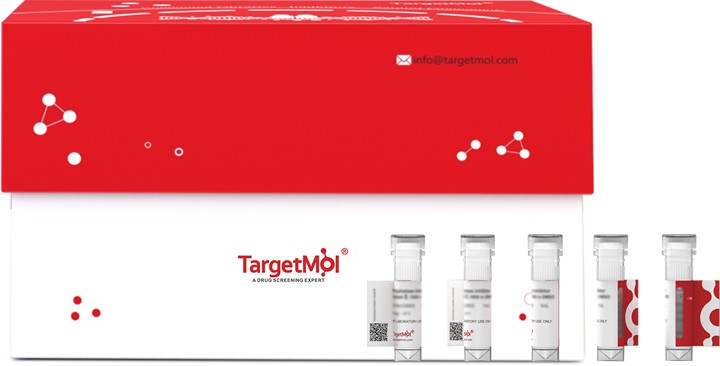购物车
 您的购物车当前为空
您的购物车当前为空
别名 VPF, VEGF-164, Vascular Permeability Factor, Glioma-derived endothelial cell mitogen, Folliculostellate cell-derived growth factor
VEGF164 Protein, Mouse, Recombinant (E. coli) is expressed in E. coli. The accession number is Q00731-2.


为众多的药物研发团队赋能,
让新药发现更简单!
VEGF164 Protein, Mouse, Recombinant (E. coli) is expressed in E. coli. The accession number is Q00731-2.
| 规格 | 价格 | 库存 | 数量 |
|---|---|---|---|
| 5 μg | ¥ 738 | 6-8日内发货 | |
| 10 μg | ¥ 1,220 | 6-8日内发货 | |
| 20 μg | ¥ 1,730 | 5日内发货 | |
| 50 μg | ¥ 2,800 | 5日内发货 | |
| 100 μg | ¥ 4,470 | 5日内发货 | |
| 200 μg | ¥ 7,180 | 5日内发货 | |
| 500 μg | ¥ 13,300 | 5日内发货 | |
| 1 mg | ¥ 21,600 | 5日内发货 |
| 产品描述 | VEGF164 Protein, Mouse, Recombinant (E. coli) is expressed in E. coli. The accession number is Q00731-2. |
| 生物活性 | The ED 50 < 5.0 ng/ml, measured by a cell proliferation assay using HUVEC Cells, corresponding to a specific activity of > 2.0 × 10 5 units/mg. |
| 研究背景 | Vascular Endothelial Growth Factor (VEGF) was initially purified from media conditioned by normal bovine pituitary folliculo-stellate cells and by a variety of transformed cell lines as a mitogen specific for vascular endothelial cells. It was subsequently found to be identical to an independently discovered vascular permeability factor (VPF), which was previously identified in media conditioned by tumor cell lines based on its ability to increase the permeability of capillary blood vessels. Three mouse cDNA clones, which arise through alternative splicing and which encode mature mouse monomeric VEGF having 120, 164, or 188, amino acids, respectively, have been identified. Two receptor tyrosine kinases (RTKs), Flt-1 and Flk-1 (the mouse homologue of human KDR), both members of the type III subclass of RTKs containing seven immunoglobulin-like repeats in their extracellular domains, have been shown to bind VEGF with high affinity. The roles of the homodimers of KDR, Flt, and the heterodimer of KDR/Flt in VEGF signal transduction remain to be elucidated. In vivo, VEGF has been found to be a potent angiogenesis inducer. |
| 种属 | Mouse |
| 表达系统 | E. coli |
| 标签 | Tag Free |
| 蛋白编号 | Q00731-2 |
| 蛋白构建 | Ala27-Arg190 |
| 蛋白纯度 | > 98% as determined by SDS-PAGE |
| 缓冲液 | Lyophilized from a 0.2 μm filtered solution in PBS. |
| 复溶方法 | Reconstitute the lyophilized protein in sterile deionized water. The product concentration should not be less than 100 μg/ml. Before opening, centrifuge the tube to collect powder at the bottom. After adding the reconstitution buffer, avoid vortexing or pipetting for mixing. |
| 别名 | VPF, VEGF-164, Vascular Permeability Factor, Glioma-derived endothelial cell mitogen, Folliculostellate cell-derived growth factor |
| 内毒素 | < 0.2 EU/μg of protein as determined by the LAL method. |
| 分子量 | ~19.4 kDa (Reducing conditions) |
| 运输方式 | In general, Lyophilized powders are shipping with blue ice. Solutions are shipping with dry ice. |
| 存储 | Upon receiving, this product remains stable for up to 6 months at lower than -70°C. Upon reconstitution, the product should be stable for up to 1 week at 4°C or up to 3 months at -20°C. For long term storage it is recommended that a carrier protein (example 0.1% BSA) be added. Avoid repeated freeze-thaw cycles. |
对于不同动物的给药剂量换算,您也可以参考 更多